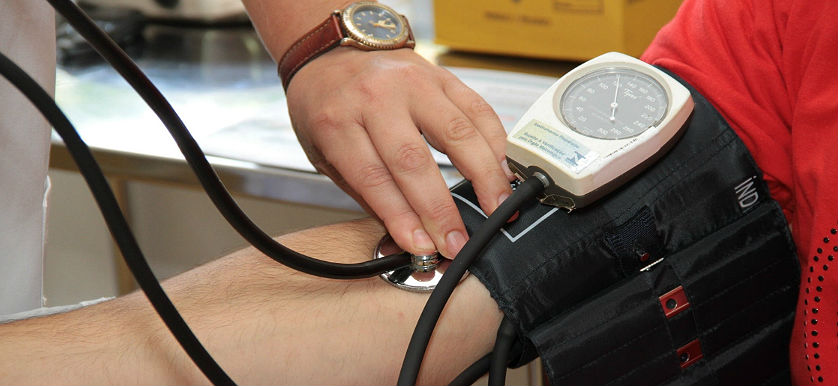Probiotics – A Possible Health Solution To Obesity In Australia?

It’s safe to say that obesity is a problem in Australia.
The frequency of obesity among Australians has steadily increased for the past 30 years. In 2011–12, around 60% of Australian adults were classified as overweight or obese, and more than 25% of these fell into the obese category.
In 2007, around 25% of children aged 2–16 were overweight or obese, with 6% classified as obese (Dept. of Health and Ageing, 2008).
And while obesity is a prevalent problem in all population groups, variations exist throughout the Australian population. Obesity is particularly widespread among those in disadvantaged socioeconomic groups, and is rampant in rural and remote areas as well.
Health problems directly related to obesity create economic burdens on individuals, families, and communities.
This raises the pressing question: How can Australia curb the growing obesity problem among its populations?
What Do We Mean By “Obesity”?
First, let’s make sure we’re on the same page when we talk about obesity.
Simply put, obesity refers to extreme excess body weight.
There are multiple methods in determining obesity, the most popular being Body Mass Index, or BMI. According to the Mayo Clinic, obesity is diagnosed when your BMI is 30 or higher. BMI is calculated by dividing your weight in kilograms by your height in meters squared. Most physicians use the following as a guideline in diagnosing obesity:
BMI Weight status
Below 18.5 Underweight
18.5-24.9 Normal
25.0-29.9 Overweight
30.0-34.9 Obese (Class I)
35.0-39.9 Obese (Class II)
40.0 or higher Extreme obesity (Class III)
For the majority of people, BMI provides a reasonable estimate of body fat. But, BMI doesn’t measure body fat directly, so some people, like muscular athletes, may have a BMI in the obese category, though they don’t have excess body fat.
As rates of obesity continue to rise in Australia, the government is looking for more data on how obesity is affecting the nation, as well as what can be done to stop the increase in obesity.

Health Risks of Obesity
To say that obesity is dangerous is a dramatic understatement.
People with obesity die younger and are prone to more illnesses than people who maintain a healthy weight. Cardiovascular disease, type 2 diabetes, musculoskeletal conditions, and some cancers are illnesses that tend to strike obese people.
Obesity puts extra stress on your joints, bones, and organs. They have to work harder than they should. Too much body fat can raise your blood pressure and cholesterol, making heart disease and stroke likely. Obesity also makes conditions like arthritis, asthma, back pain, and sleep apnea worse.
Too much fat can also cause inflammation that damages cells. Obesity is also linked to several types of cancers, it can make your body insulin resistant, and it can lead to early death.
The Mayo Clinic also lists other complications that can occur frequently with obesity:
- High triglycerides and low high-density lipoprotein (HDL) cholesterol
- Type 2 diabetes
- High blood pressure
- Metabolic syndrome —high blood sugar, high blood pressure, and high cholesterol
- Heart disease
- Stroke
- Cancer
- Breathing disorders
- Gallbladder disease
- Gynecological problems, such as infertility and irregular periods
- Erectile dysfunction and sexual health issues
- Nonalcoholic fatty liver disease
- Osteoarthritis
In addition, the quality of life for an obese person is severely diminished. You can’t do all the things you used to, you may be shy and not want to be in public, or you may even be discriminated against. Other obesity related issues that can affect your quality of life include the following:
- Depression
- Disability
- Sexual problems
- Shame and guilt
- Social isolation
- Lower work achievement
When taken together, these risks show that being obese puts diminishes the quality of your life.

Causes of Obesity
Primarily, obesity is caused by an imbalance between calorie intake and energy expenditure. When you eat more calories than you burn, you gain weight. So, the most common causes of obesity are overeating and lack of physical activity.
There are other causes of obesity. People can become emotional eaters when they cannot handle the stress of their life, have a family history of obesity, or have friends who influence eating and exercising habits.
The different reasons for obesity can be summed up as follows:
1) Consuming too many calories
2) Leading a sedentary lifestyle
3) Not sleeping enough
4) Endocrine disruptors, such as some foods that interfere with lipid metabolism
5) Lower rates of smoking (smoking suppresses appetite)
6) Medications that make patients put on weight
7) Obesity is self-perpetuating
8) Obesity gene
Obesity And A Probiotics Deficiency
There is also research available that strongly suggests a connection between gut health and obesity.
Studies have demonstrated that obesity is associated with an imbalance and lower bacterial diversity in the intestinal tract. In obese people, low bacterial gene richness is associated with more marked overall obesity, impaired glucose regulation, and higher overall body inflammation.
Gut bacteria produce important nutrients like vitamin K and some B-vitamins. They also break down fiber the body doesn’t digest, transforming it into useful short-chain fatty acids.
There are two families of good bacteria that affect body weight: Firmicutes and Bacteroidetes.
Studies have found that individuals with a healthy weight have different gut bacteria than overweight or obese people. In those studies, people with obesity had more of one type (firmicutes) and fewer of the other type (bacteroidetes), compared to those with a healthy weight.
These studies suggest that gut bacteria could play a significant role in weight regulation.
How Do Probiotics Prevent Obesity?
A study published in Nutrition and Metabolism investigated the gut flora phenomenon in weight regulation. Researchers found that gut flora is strongly affected by dietary patterns. A high-fat and high-sugar diet increases Firmicutes at the expense of Bacteroidetes, but low-calorie diets increased the abundance of Bacteroidetes in obese individuals.
The researchers also found that the human intestinal ecosystem can be altered within a single day of changing from a high-fat, high-sugar diet, to a plant based, low-calorie diet. They also found that subjects with healthier diets showed fewer instances of metabolic problems than can lead to obesity.
The body of evidence suggests that associations exist between intestinal microflora function and health issues linked to obesity, such as atherosclerosis, insulin resistance, and low-grade chronic inflammation. The low-grade inflammation seems to be a significant factor in metabolic problems that can lead to obesity.
Other research suggests that there are specific probiotic strains that can help prevent obesity. Some researchers believe that certain probiotics can inhibit the absorption of fat, increasing the amount of fat excreted from the body.
Probiotics may also fight obesity in other ways:
- Release of GLP-1: Probiotics may help release the appetite-reducing hormone GLP-1. Increased levels of this hormone may help you burn calories and fat.
- Increase of ANGPTL4: Probiotics may increase levels of the protein ANGPTL4. This may lead to decreased fat storage.
By improving gut health, probiotics may reduce systemic inflammation and protect against obesity and other diseases. Nutritionists at Healthline.com suggest the following conditions can be significantly helped by probiotics – and many of these are linked to obesity:
- Inflammation: Probiotics have been shown to reduce systemic inflammation, a leading driver of many diseases.
- Depression and anxiety: The probiotic strains Lactobacillus helveticus and Bifidobacterium longum have been shown to reduce symptoms of anxiety and depression in people with clinical depression.
- Blood cholesterol: Several probiotics have been shown to lower total and LDL cholesterol levels.
- Blood pressure: Probiotics have also been shown to cause modest reductions in blood pressure.
- Immune function: Several probiotic strains can enhance immune function and lead to reduced risk of infections, including the common cold.
- Skin health: There is some evidence that probiotics can be useful for acne, rosacea and eczema, as well as other skin disorders.
The Overall Solution: A Healthy Lifestyle
The best and safest way to fight obesity is with a commitment to a lifestyle of healthy diet and exercise. Losing weight and keeping it off safely should include several features:
- The diet should be safe
- The weight-loss program should be directed toward a slow, steady weight loss
- The program should include plans for weight maintenance after weight-loss
- The program includes a probiotic that balances your gut flora
Studies have found that certain strains of bacteria can help you reduce weight.
In one study, women taking probiotics lost 50% more weight compared to the placebo group.
But choose your probiotic with caution. Some studies found that certain probiotic strains like Lactobacillus acidophilus (the main strain in yogurt) can lead to weight gain. Before adding a probiotic, do appropriate research and talk with professionals familiar with the various probiotic formulae available on the market.
Conclusion
You can be confident that, beyond diet and exercise, supplementing with probiotics is another way to increase weight-loss and decrease obesity. But, it’s important that anyone seeking to use probiotics in combination with a weight-loss program check with his or her physician prior to beginning a program.
Stopping the pandemic of obesity in Australia will require education of the general public, not only on healthy eating and appropriate exercise, but also on the health benefits of probiotics.
Image sources:
Originally published on Aussiehealthco.com.
Tags: Healthcare performance, Performance in Australia, Personal Care






